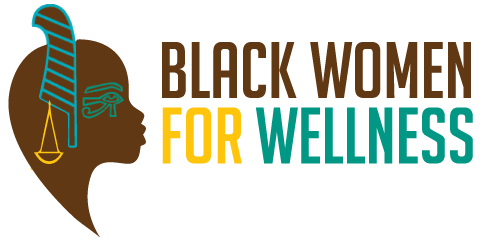Senate Bill 464 Explained
The California Dignity in Pregnancy and Childbirth Act was signed into law in 2019. Effective January 1, 2020, the law requires:
1. Implicit Bias Training
Hospitals and birthing centers must provide implicit bias training for perinatal providers every 2 years.
2. More Detailed Information Sharing
Updates to the California Electronic Death Registration System to reflect the U.S. Standard of Death Certificate and more detailed information about pregnancy status in relation to time of death.
3. Data Transparency
The California Department of Public Health (CPDH) must track and publish maternal mortality data by race, ethnicity, and region.
4. Information on How To File a Grievance
Hospitals must provide information to every patient upon admission about their right to be free of discrimination and where they can report discrimination in their healthcare.


Implicit Bias & Discrimination
What is implicit bias?
Implicit bias refers to the attitudes or stereotypes that unconsciously affect our understanding, actions, and decisions. Influenced by societal and cultural norms, these biases can be based on various factors such as race, gender, age, ethnicity, religion, and other social categories.
They can manifest in subtle ways and may influence our judgments, behaviors, and interactions with others. Implicit biases can shape our perceptions and behaviors in various situations, such as in the workplace, education, healthcare, and social interactions.

Research suggests that implicit biases can be formed through exposure to cultural messages, media, and personal experiences. They can contribute to unfair and discriminatory practices, even in individuals who consciously believe in equality and fairness.
Recognizing and addressing implicit biases is essential for fostering a more inclusive and equitable society, as it helps individuals and institutions become aware of and mitigate the impact of these unconscious biases. Training programs, education, awareness campaigns, and ongoing self-reflection are among the strategies used to address implicit bias and promote fairness and diversity.

Identifying Discrimination
Your provider makes harmful assumptions about your marital status, sexuality, socioeconomic status, family dynamics, sexual history, pregnancy history, medical history, etc.
Your physical symptoms such as shortness of breath, headaches, leg pain or swelling are dismissed, downplayed, or ignored.
Discrimination can come from any provider you encounter during your pregnancy from OBGYNs to anesthesiologists to family medicine physicians. Types of providers include medical physicians, osteopathic physicians, nurses, midwives, medical assistants, physician’s assistants, etc.

Navigating these situations can be challenging, but luckily we have some tools and tips that can help make the process easier. The three most important things to remember are communication, advocacy and grievance reporting.
Communication
Navigating pregnancy amid healthcare bias is tough. Effective communication matters, but asking the right questions can be challenging. Fortunately, we’ve got your back with guidance for both you and your provider.

Self and Community Advocacy
Always be your own advocate! If you’re unsure where to start, check out our tips for guidance as you navigate through the process.
Grievance Filing and Reporting
If things don’t improve or you experience bias or discrimination, remember you have choices! Speak up by filing a grievance or complaint without hesitation.


Communication & Advocacy
Questions to Ask
Managing pregnancy in the face of healthcare bias is challenging. While effective communication is crucial, posing the right questions can prove difficult. Luckily, we’re here to support you with advice for both you and your provider.
Examples of questions to ask your provider:
- Have you completed implicit bias training? What training did you complete? Can you provide proof of completion?
- What is your experience with Black patients? Do you have statistics on the rate of Black patients that experience outcomes such as live births, vaginal deliveries, cesarean sections, maternal mortality and morbidity in the practice?
- What is your philosophy on birth? What is your relationship with your patients usually like? What role do you see yourself playing in their births?
- How many Black providers do you have in your practice, including nurses, midwives, etc? What is your practice doing to increase the number of Black providers?
Voicing Your Concerns and Opinions
Be your strongest advocate! If you’re uncertain about the beginning steps, explore our tips for direction as you navigate through the process.
Examples of how to voice your concerns and opinions:
- One of the best ways to voice your concerns is to ask questions. Why does this procedure need to be done now? How is the information from this test going to change the management of my/my partner’s pregnancy? How much time do I have to decide whether or not I want to have an induction? What are the pros and cons of doing this procedure?
- Have others as witnesses to interactions with your provider. They can also amplify your concerns by asking their own questions.
- Document any concerning symptoms. Take pictures of any wounds and videos of any breathing patterns, etc. Ask questions if your symptoms are being ignored: Why are you not concerned about my headaches? What could it mean if I am having difficulty breathing and leg pain?
Advocate for Yourself
Embrace your role as a powerful advocate, and keep in mind that you’re not on this journey alone. If you’re unsure about where to start or whom to involve in this process, take a look at the tips provided below.
Examples of how to advocate for yourself:
Bring support people with you to your appointments.
- This can be a partner, a family member, and/or a community birthworker such as a doula or FaceTime or Zoom in a loved one
Create a pregnancy/birth plan or goals.
- Share this with your support people and provider to ensure that everyone is on the same page. Frequently revisit your plan to ensure your goals are being respected and met.
Do your research.
- If possible, read reviews about your providers and their practice.
- Stay up to date on any lawsuits or discrimination cases in the news that may involve the practice.
- Research what to expect at each stage of your pregnancy, what symptoms may be normal versus ones that may be abnormal, and what tests or procedures that need to be done and when. This step will be made easier if you have a birthworker with you.
- Be prepared with specific questions to ask your provider at each of your visits.
Ask for additional information and resources.
- Ask your provider if they have connections with any doulas or midwives in the community that you can reach out to for support.
- Ask if they are aware of any Black owned organizations that can provide culturally relevant information and resources.
Reporting and Grievance Filing
If you are experiencing discrimination, it can be difficult to remember what information you will need when reporting the situation. Here are tips for what information you may need when filing a grievance:
- Note the full name and title of the healthcare provider you are reporting.
Note the name, address, and phone number of the clinic or institution where the incident took place. - Note the date of the incident and write down a detailed description of the event. Documenting the situation soon after it has occurred can be crucial to including key details.
- Think of what you would like to see as a solution.

4 steps to
Grievance Filing
- Note the Provider
- Note the Care Facility
- Note Date and Event
- Note Desired Result
How to file a grievance against your provider if you have Medi-Cal:.
- Discrimination grievances must be submitted to the Department of Health Care Services (DHCS) Office of Civil Rights within 365 days from the day the discrimination took place.
- Completed grievance forms may be filed by mail addressed to the Office of Civil Rights, Department of Health Care Services, PO Box 997413, MS 0009, Sacramento, CA 95899-7413, or by email addressed to CivilRights@dhcs.ca.gov. Complaints may also be filed by calling the DHCS Office of Civil Rights at (916) 440-7370 or by written correspondence.
- Within ten (10) days of receipt of a discrimination grievance, the DHCS Office of Civil Rights will send you written notification that your grievance has been received. The Office of Civil Rights will let you know if more information is needed.
- As part of its investigation, the DHCS Office of Civil Rights may share information about your grievance with your Medi-Cal managed care plan or the person or entity complained about. To the extent possible, and in accordance with applicable law, the DHCS Office of Civil Rights will take appropriate steps to preserve the confidentiality of files and records relating to grievances and will share them only with those who have a need to know.
- Within ninety (90) days of receipt of a discrimination grievance, the DHCS Office of Civil Rights will issue a written determination explaining its findings, or, if the investigation is ongoing, will provide an update on the status of the investigation and the expected date of completion.
- In the event the DHCS Office of Civil Rights determines the grievance is not within its jurisdiction, it will notify you of that determination in writing within 90 days of receipt of the discrimination grievance.
Filing an Appeal with DHCS
- You may appeal the written determination of your discrimination grievance within fifteen (15) days of receiving it. The written determination will be deemed received five (5) days after mailing, if mailed, or immediately upon electronic transmission, if faxed or emailed. Appeals may be filed by mail addressed to the Office of Civil Rights, Department of Health Care Services, PO Box 997413, MS 0009, Sacramento, CA 95899-7413, or by email addressed to CivilRights@dhcs.ca.gov.
- Appeals must identify the written determination being appealed or include a copy of the DHCS Office of Civil Rights written determination and an explanation of the reason you are appealing the determination.
- The DHCS Director, or his designee, will issue a written determination of an appeal no later than sixty (60) days after the DHCS Office of Civil Rights receives the appeal. The determination on appeal will not be decided upon by any person who participated in the determination of the discrimination grievance that is being appealed.
Language and Disabilities Assistance
- Provides free aids and services to people with disabilities to communicate effectively with DHCS, such as qualified sign language interpreters and real-time captioning and written information in other formats such as Braille, large print, audio, accessible electronic formats and other formats.
- Provides free language services to people whose primary language is not English, such as qualified interpreters and information written in other languages
- If you need these services, call the Office of Civil Rights, at (916) 440-7370, 711 (California State Relay) or email CivilRights@dhcs.ca.govLanguage and Disabilities Assistance.
Filing a Grievance Against DHCS
- Complaints of discrimination on the basis of race, color, national origin, sex, age or disability may also be filed with the U.S. Department of Health and Human Services, Office for Civil Rights. A person can file a complaint of discrimination electronically through the Office for Civil Rights Complaint Portal or by mail or phone at: U.S. Department of Health and Human Services, 200 Independence Avenue SW., Room 509F, HHH Building, Washington, DC 20201.
- Complaint forms are available at the U.S. Department of Health and Human Services website. Complaints filed with the U.S. Department of Health and Human Services, Office for Civil Rights must be filed within 180 days of the date of the alleged discrimination.
More Information about the DHCS/ US DHHS grievance process
How to file a grievance against your provider through the Medical Board of California, regardless of insurance
- Call to have a Complaint Form mailed to you either through the toll-free line (1-800-633-2322) or by calling (916) 263-2424, use the online complaint form, or download and print the complaint form and mail to Medical Board of California Central Complaint Unit 2005 Evergreen Street, Suite 1200 Sacramento, CA 95815-5401
- When mailing your complaint, you must include the following: Consumer Complaint Form, Authorization for Release of Information for the Subject of the Complaint, and EITHER the Physician/Provider/Facility Authorization for the Release of Information OR the Kaiser Authorization for the Release of Information.
- Should the patient be deceased, the person signing the release form(s) must be a legal representative as demonstrated on a durable power of attorney, death certificate, or an executor of will/estate document. (You must enclose a copy of supportive documentation with other mailing documents).
More Information about the Medical Board Complaint process.
How to file a grievance against an osteopathic physician (DO)
- You can submit your complaint using our online complaint form, or by downloading, printing, and mailing the following forms: Osteopathic Medical Board Consumer Complaint Form, Subjects (Physician) Authorization Release, Other Provider/Facility Authorization Release, Kaiser Authorization Release
- Documents can be mailed to Osteopathic Medical Board of California 1300 National Drive Suite 150 Sacramento, CA 95834-1991. For more information, call (916) 928-8390.
More information about the Osteopathic Medical Board of California Complaint process.
How to file a grievance with the American Civil Liberties Union (ACLU)
- The ACLU can provide legal assistance at no cost to you in the case of discrimination.
- Write a letter to ACLU SoCal Legal Intake 1313 West Eighth St. Los Angeles, CA 90017
- Leave a voicemail message on their Intake Line at 213-977-5253, giving your name, daytime telephone number, and a brief description of the issue you wish to discuss. Your call will be returned by one of their volunteer pre-screeners; they are not lawyers and cannot give legal advice to you, nor can they refer you to individual private attorneys. They can mail you appropriate referrals to other agencies which may be of help, and present certain information on your case to their supervisor at the ACLU for review.
- Securely submit a complaint online.
More information about filing with the ACLU.

Letter templates to file grievances
- DHCS Grievance Template
- US Department of Health and Human Services Grievance Template
- Medical Board Complaint forms
- Consumer Complaint Form
- Authorization for Release of Information for the Subject of the Complaint
- Physician/Provider/Facility Authorization for the Release of Information
- Kaiser Authorization for Release of Information
- Osteopathic Medical Board Complaint Forms
- Osteopathic Medical Board Consumer Complaint Form
- Osteopathic Medical Board Consumer Complaint Form (Spanish Version)
- Subjects (Physician) Authorization Release
- Other Provider/Facility Authorization Release
- Kaiser Authorization Release
- ACLU Request Form
- ACLU Legal Request
Stay Connected
The Black Women for Wellness team is here to support you! If you ever need extra assistance, feel free to reach out to us for additional resources or advocacy tools. We’ve got your back!





